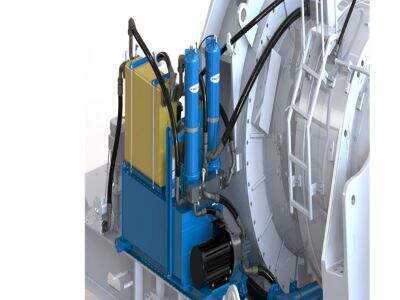When we think cars, our minds fixate on the motor. It is the important motor because it gets the car moving. But did you know there are, in fact, three systems working in tandem to make sure your car runs smoothly? Air-cooling, water-cooling, and hydraulic Lubrication System. Let’s explore how each system helps keep your car running at its best.
Air-Cooling: Preventing the Engine from Overheating
It is an air-cooling system that avoids dilution of the engine. When the engine is running, it generates a lot of heat. If the oil becomes overheated, this heat can cause machine components to wear more quickly. Air-cooling employs foil and heat sinks. These components serve to channel heat away from the engine and dissipate it into the air surrounding the vehicle. This is crucial because the engine, for example, will break down (and not work properly) if it is too hot.
Air-cooling is especially critical for engines in devices like mowers and motorcycles. These engines are put to hard work but don’t move as quickly as cars do. Because they’re working so hard, they heat up fast. The air-cooling system works to maintain them at the right temperature, allowing them to continue operating without overheating.
Water-Cooling: Teaming Up with Air to Stay Cool
An additional significant system is water-cooling for cooling the engine. Rather than pumping air only, the system uses a liquid, typically a recipe of water and antifreeze. This mixture absorbs heat from the engine. That hot liquid then flows to a part known as a radiator, where it cools down before changing tack and returning to the engine. This cycle continues again and again to maintain engine temperature.
Water-cooling is an especially important feature of fast cars, trucks and long distance driving. When cars run fast, they generate lots of heat and the water-cooling system deals with it properly.
Water-cooling can complement air-cooling to keep the engine even cooler. For instance, both air and water are used in some high-performance engines to keep them cooled. Air helps to dissipate a lot of heat quickly when the engine runs hot, and water helps to keep the temperature even and low over a longer period of time. Together, they create the best of the engine's performance.
Lubricazione Systems: Keeping the Engine Moving
Next up, lubrication systems. They may not be as flashy as the other two systems, but they are still very important. Oil creates a layer that reduces friction between the moving parts inside the engine in lubrication systems. Friction is when two pieces rub against one another. Companies that have too much friction tend to wear out their engines, they don’t run as well and they don’t last as long.
Lubrication also reduces heat build-up in the engine, protects it against damage and rust, and other problems. An oil lubrication system is the most widespread one. The oil is stored in geology, a specific reservoir or container. A pump circulates it through the engine. An oil filter is important as well, it cleans the oil. This prevents the oil from getting dirty and getting harmful contaminants enabling the car to run smoothly and allowing its engine to be clean.
Modern engines also use additional types of lubrication, such as synthetic oils, or even special magnets that contribute to decreasing friction. Such advances in lubrication can enable more efficient operation and increased longevity of engines.
How All Three Work Together
So, how does air-cooling, water-cooling, and lubrication systems work? It’s all about maintaining that balance — of heat and friction. The engine will need to be cooled, and air and water are very efficient means of doing this, so one will be used when the engine is running. At the same time, system lubrication diminishes friction, so the engine doesn’t have to work as hard or as long before it starts wearing out.
This balance leads to better fuel efficiency, giving the car ability to spin less gas, faster acceleration, this will let the car go faster on a short period of the time, and longer engine life. These are great benefits for any car owner.
Just as importantly, all three systems need to work together well and be adequately maintained. If the oil level is too low, for instance, the engine may run too hot or with extra friction, which causes damage. If the coolant in the water-cooling system is contaminated or is not checked periodically, it would not cool the engine properly, resulting in overheating. To compound things, if pieces such as air cool fins or the radiator become clogged with dirt and debris, the engine may become hot, which can have dire consequences.
That’s why you need a good mechanic — like NanJing Fourall — to help care for your car. Not only can they ensure that your air-cooling, water-cooling, and lubrication systems are all functioning well in conjunction with each other. That way, you can get the most out of your automobile and make it last. With proper maintenance of these systems, you can have peace of mind knowing your vehicle is operating at peak performance.
 EN
EN
 AR
AR
 FR
FR
 DE
DE
 HI
HI
 IT
IT
 JA
JA
 KO
KO
 PT
PT
 RU
RU
 ES
ES
 TR
TR







